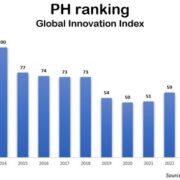The Philippines’ 17.7% record-high unemployment rate last April does not reflect the actual picture of the economy and the jobs market due to the impact of the global pandemic said Bangko Sentral ng Pilipinas (BSP) Governor Benjamin Diokno.
On Saturday, June 6, in a viber exchange with reporters, Governor Diokno said the unemployment rate in the fourth month of this year “was more a result of the policy decision to save lives in response to the COVID-19 (coronavirus disease 2019) pandemic.”
Governor Diokno noted that the April 2020 Labor Force Survey (LFS) was conducted during the enhanced community quarantine which was from April 20 to May 16. Further, this was initially raised over mainland Luzon since March 17 and was later extended to May 12. As a result, Diokno noted that because of the community quarantine, implemented to arrest the further spread of COVID-19, “a big part of the economy was shuttered.” Thus, this points out that “the consequent rise in joblessness was state-induced.”
“I’m confident that the next jobs report which is due August 1, 2020 will show a starkly different picture,” he said, citing that the next LFS will be done from July 20 to August 15.
Governor Diokno said, “while the impact of the pandemic on the economy is broad-based, it is uneven across industries.”
Moreover, Diokno summarised that job losses “follow the same pattern” and “predictably most jobs were lost in the services sector (wholesale and retail, transportation and storage, accommodation and food) and the industry sector (construction and manufacturing).” Also noting in the briefing was that workers in the agriculture industry were permitted to work during the quarantine which would then explain the fewer job losses.
In terms of job recovery, Diokno said this will eventually happen however some jobs will be permanently lost but new ones will be created.
“On the part of the BSP, while it cannot directly ease the rise in unemployment, it recognized that the timely, proactive, and decisive monetary actions it deployed at the onset of the pandemic were strategic moves to contain the volatilities and ensure confidence in the financial market, thereby, averting further damage to the economy,” he said.
Diokno said that the central bank is “committed to stav(ing) off prolonged and deeper economic contraction.”
“We, therefore, reiterate our support for carefully coordinated actions with other government authorities, as well as pending stimulus bills in Congress aimed at responding to the evolving needs of the economy as it transitions into new economic realities amid the ongoing pandemic,” he added.






